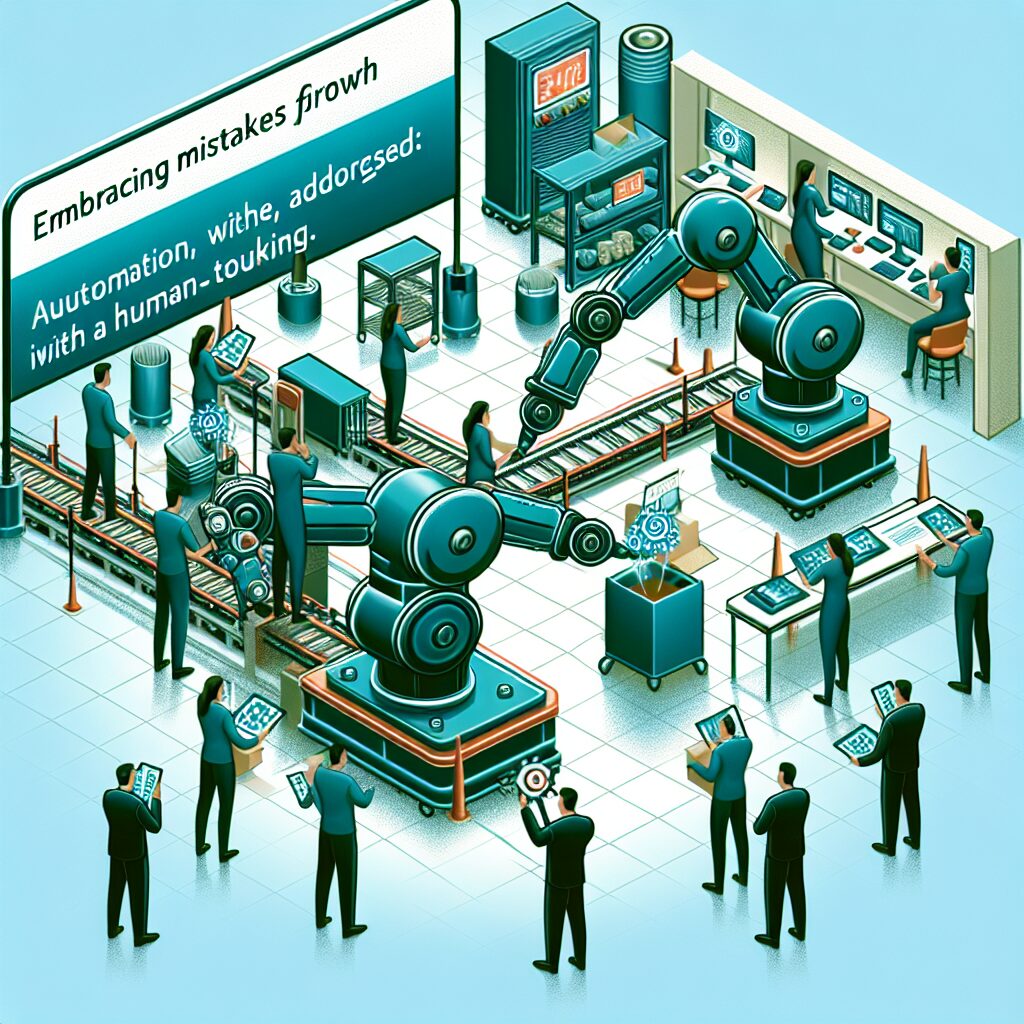
Embracing Imperfection: The Importance of Designing for Mistakes with Poka-Yoke

Mistakes Are Inevitable – Let’s Design for Them
Isn’t it funny how we often strive for perfection, only to trip ourselves up in the process? It’s like trying to walk a straight line while focusing on how straight we’re walking—inevitably, you find yourself veering off course. The truth is, mistakes are part and parcel of any journey, particularly in business. So why not embrace them?
This is where the Japanese concept of Poka-Yoke comes into play. This intriguing term translates roughly to “mistake-proofing”, and it’s all about designing systems to catch errors before they escalate. Picture this: a USB that only fits one way. Clever, isn’t it? It’s a simple design that allows for no missteps, and we can learn a lot from that idea.
What is Poka-Yoke?
Poka-Yoke is rooted in the idea that humans are, well, human! We make slips and misjudgements, and it’s essential to design our systems with this reality in mind. Rather than hoping for flawless execution, which is a bit like expecting a toddler not to spill their juice, we should focus on creating a framework that naturally guides people in the right direction.
At City Skills, we’ve made it our mission to integrate Poka-Yoke principles into our operations, and it’s been nothing short of transformative. Here are a few ways we’ve put this philosophy into action:
- Robust permissions: Our systems prevent accidental changes, ensuring that even a momentary lapse in concentration doesn’t spell disaster.
- Dashboards: We alert teams about missing metrics before they become huge problems, fending off potential crises well in advance.
- Onboarding protocols: New hires follow a detailed process, making certain that no crucial step is skipped—adventurous spirits included!
Why You Need a Shift in Mindset
It’s time to shift our mindset from perfect users to real people operating in a complex world. If your business relies solely on the hope that nobody will forget a critical step, you’re practically setting a trap for mishaps. Let’s face it; we’re all juggling multiple tasks, and even the best of us can drop a ball now and then.
Instead of fighting against human nature, let’s build systems that embrace it. After all, when you accept that mistakes will happen and plan for them, you create a more resilient and efficient workplace. This isn’t just theory; I’ve seen firsthand how adopting a Poka-Yoke approach reduces stress levels among teams. With fewer mistakes to wrangle, there’s more room for creativity and innovation.
How to Embrace Poka-Yoke in Your Operations
So, how can you bring this delightful approach into your own operations? Start small. Look at the processes you have in place and identify potential weak spots. Ask yourself these questions:
- Where do mistakes tend to happen, and how can I address these issues?
- Can I simplify any processes to make them more user-friendly?
- Are there checks I can introduce that would serve as safety nets for my team?
Making these adjustments doesn’t have to be daunting, and the payoff is significant. My experience tells me that creating an environment where mistakes are managed rather than penalised fosters trust and empowerment. When people feel secure, they’re far more likely to take calculated risks, leading to great ideas and progress.
In essence, designing for mistakes isn’t an admission of failure; it’s a badge of honour. It’s saying, “I acknowledge our humanity and act accordingly.”
Embrace Your Imperfections
As I sit back and reflect on the journey at City Skills, I can’t help but feel proud of what we’ve achieved by embracing Poka-Yoke. It’s made us more robust, and it has opened up a dialogue about how we can continuously improve. In the end, it’s not about eliminating errors; it’s about learning from them and finding ways to support each other through the bumps along the way.
So, here’s my question to you: how are you designing for mistakes in your own life or business? Let’s chat about it—leave a comment below or reach out on social media. After all, we’re all in this together!





